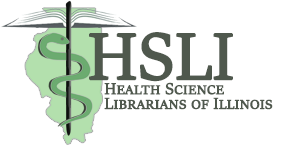(via Megan Lowe, University of Louisiana at Monroe)
The title Violence in Libraries has been changed and expanded to Crisis Management and Aversion in Modern Libraries. Please find the updated, expanded, and extended “Call for Chapters” below (also accessible via https://www.igi-global.com/publish/call-for-papers/call-details/3052):
Introduction
Librarians are no strangers to crises of all sorts. Drug overdoses, tornadoes, domestic violence, and riots have all touched libraries; these are not events that happen in other places. And public libraries are not the only libraries affected by such events. How can librarians, library staff, and library administration across the spectra of libraries – public and academic, school and special, law and medical – ensure and enhance the safety of their patrons and their spaces while preventing or mitigating crises?
This publication will seek to identify and report, through well-researched chapters, case studies and examples of how crises have affected libraries of all types and how those libraries have responded to these events. It will seek to identify solutions and ways of preventing or mitigating the risk of various crises in the context of the library. It seeks to cover a wide range of libraries, acknowledging that different types of libraries serve different types of populations, though none are immune to the unexpected crisis. Furthermore, different types of libraries may well experience different types of crises, so it is useful to examine this phenomenon from multiple perspectives.
Objective
Not only do different types of libraries serve different types of populations, the old real estate adage about the importance of “location, location, location” cannot be ignored. What doe crises look like in urban libraries versus rural ones? What do crises look like in libraries in developed countries versus developing ones? What do crises look like in public libraries versus academic ones? It is critical to understand this phenomenon from a variety of perspectives to (1) gain a better understand of the phenomenon itself as well as (2) to identify solutions that are working which could be of use to other libraries with similar problems and (3) help libraries develop policies and procedures that make the library safe for patrons and employees alike.
Target Audience
Librarians, researchers, administrators, advanced-level students, information technology professionals, and library staff will find this title useful for both understanding the phenomenon of crises in libraries and identifying approaches for prevention and mitigation which can underpin library policies and procedures to enhance safety for employees and patrons alike.
Recommended Topics
Contributors are welcome to submit chapters on the following topics related to crises in libraries and active approaches towards prevention and mitigation. Possible topics include but are not limited to:
Case studies, library reactions, policy and procedure analyses of any type of library crisis, such as acts of violence and terrorism, civil unrest, natural disasters and weather emergencies, catastrophic budget cuts, public health hazards, and accidents.
Researchers and practitioners are invited to submit on or before July 31, 2018, a chapter proposal of 1,000-2,000 words clearly explaining the mission and concerns of his or her proposed chapter. Authors will be notified by August 1, 2018, about the status of their proposals and sent chapter guidelines. Full chapters are expected to be submitted by September 28, 2018. All submitted chapters will be reviewed on a double-blind review basis. Contributors may also be requested to serve as reviewers for this project. Note: There are no submission or acceptance fees for manuscripts submitted to this book publication. All manuscripts are accepted based on a double-blind peer review editorial process. All proposals should be submitted through the “Propose a Chapter” link [https://www.igi-global.com/publish/call-for-papers/call-details/3052].
Inquiries may be directly to either:
Megan Lowe
University Library
University of Louisiana at Monroe
700 University Avenue
Monroe, LA 71209
Phone: (318) 342-3041
Email: lowe@ulm.edu
-Or-
Lindsey Reno
Earl K. Long Library
University of New Orleans
2000 Lakeshore Drive
New Orleans, LA 70122
Phone: (504) 280-6499
Email: lreno@uno.edu
